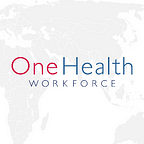Distance Is Not a Hindrance
Evaluation of One Health Core Competencies Integration Into Curriculum
One Health education for faculty members in Southeast Asia increases the region’s workforce capacity to detect, prevent, and respond to emerging pandemic threats. Faculty members are part of our current One Health workforce, but also teach the next generation of One Health workers. Assessing where the One Health concept has been integrated into university curricula and establishing next steps are critical components to continuing multi-sectoral collaboration within the region.
On February 16, 2017, the Indonesia One Health University Network (INDOHUN), with support from the USAID One Health Workforce project, conducted an evaluation workshop in the Faculty of Public Health at the University of North Sumatera with the faculty dean and stakeholders. As part of this initiative, INDOHUN also hosted a public lecture, ‘Infectious Disease, Zoonoses, and Climate Change,’ delivered by Dr. Nyoman Sri Budayanti, a clinical microbiology expert and a INDOHUN Liaison Officer.
Located in the western part of Indonesia, 1,250 miles away from the central government of Indonesia, “Distance is not a Hindrance” seems to be the appropriate motto for this faculty as they have implemented One Health curriculum since 2015. Both faculty members and students have a strong desire and enthusiasm to implement the One Health approach.
Around 260 students from multiple disciplines attended the public lecture where they took part in a dynamic discussion session.
During the evaluation meeting, 15 faculty representatives presented how they could insert and incorporate the One Health concept into courses and faculty curriculum during the curricula rearrangement in 2017. Currently, lecturers trained in One Health by INDOHUN are now in integrating and delivering the One Health concept and knowledge in several subjects, including Basic Epidemiology, Surveillance, Epidemiology for Zoonoses, Infectious Disease Control Program, and Epidemiology for Disaster from epidemiology program. Other programs and courses that supported One Health competencies are Basic Environmental Health, Analysis of Environmental Quality, Environmental Contamination, Environmental Health Risk Analysis, Environmental Health Epidemiology, Vector Control Management, Leadership and System Thinking, World Health Organization, Health Promotion Management, Global Health Issues, Health Communication, Socio Anthropology, and Health Ethics Science.
The successful integration of One Health ideals into subjects and the learning process is a result of a series of trainings for faculty during INDOHUN activities. Subsequently, the faculty members have used and adopted the One Health manual distributed to all faculty members during the trainings.
The faculty are now important advocates of One Health within the region. Faculty members have facilitated and encouraged their students to actively participate in INDOHUN activities, like the Global Health True Leaders (GHTL) program. In July 2016, six people from the University of North Sumatera participated in GHTL Batch 6. These future leaders have been equipped with core competencies on One Health and have displayed their contribution for the university by supporting the implementation of the One Health concept.
Building on the skills learned at the university and One Health activities, many of the students have taken their knowledge to the next level within the region. Student successes include 3 alumni pursuing master’s degrees, 2 alumni working as teachers in local communities, and 1 alumni selected as a Young Southeast Asian Leaders Initiative awardee who studied at the Northern Illinois University for 5 weeks in a student exchange program.
The evaluation workshop recorded the success and impacts, as well as the challenges in implementing One Health concepts in learning elements, including faculty curricula, student engagement, and student achievement as true leaders. It is expected that this activity can motivate and promote all the university members to replicate the success by improving their curricula to incorporate One Health concepts as a means to build skills and knowledge to prevent, detect, and respond to emerging infectious diseases.
About the Author
Alexandra Tatgyana Suatan is a networking officer with the Indonesia One Health University Network (INDOHUN), a network supported by the USAID One Health Workforce project.
